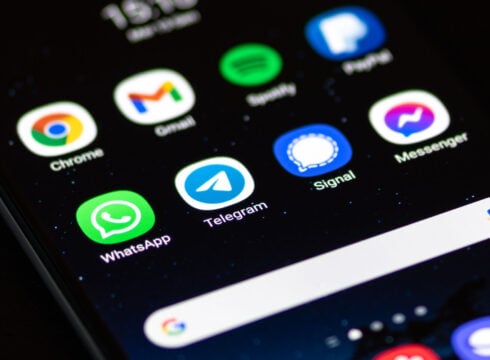SUMMARY
As per the industry body, such services should not be brought under the licencing framework
OTT services should be governed by the IT Act 2000 as those are information technology services, BIF recommended
“Telecom networks and OTT applications operate in different layers”- BIF
Inc42 Daily Brief
Stay Ahead With Daily News & Analysis on India’s Tech & Startup Economy
Broadband India Forum (BIF) has suggested that over-the-top (OTT) communication, broadcasting services and internet-based communication can not be termed as telecommunication services.
Hence, as per the industry body, such services should not be brought under the licencing framework, ET reported.
If such players come under the ambit of the telecommunication service licence, it would imply that the government only holds the exclusive privileges to decide, build, develop and operate the OTT apps, the body said in its submission for comments on the draft telecom bill.
“Such a situation is grossly anomalous, highly impractical and will lead to a collapse of the entire app ecosystem and thereby impacting innovation and growth of the economy,” it said.
BIF consists of tech giants such as Amazon, Google, Microsoft, Intel, TCS, as its members.
Industry Bodies Opposing The OTT-Related Provisions
Earlier in September, the Ministry of Communications released draft Indian Telecommunication Bill, 2022. It proposed widening the definition of telecommunication services to regulate new-age services like over-the-top (OTT) communication services, which has caused a stir in the industry.
“We see a completely different licensing framework in the draft bill. It is based on a complex and confusing structure of definitions of ‘telecommunication’, ‘telecommunication services’ and ‘telecommunication network’ and introduction of separate categories of licences for ‘telecommunication services’ and ‘telecommunication network’,” BIF commented.
While defining the concerned terms and amending regulatory provisions, it should be noted that licencing should be required for telecommunication networks, BIF recommended.
It also added that licensing under the Indian Telegraph Act or its replacement, does not apply to OTTs. More importantly, OTTs services should be governed by the IT Act 2000 as those are information technology services.
For a long time now, the telecom operators have been speaking against OTT communication apps, calling for the same rules. The main reason for the dispute is that the key revenue generators for telecom players – voice and messaging services – have seen a huge decline with the increasing use of the OTT communication apps as they provide free audio and video calling and messaging services.
As per the BIF, such contentions are not correct, both under law and policy, and may be driven by commercial objectives.
“Telecom networks and OTT applications operate in different layers (network layer and application layer respectively). Application layer is not part of telecommunication network and it will be incorrect to assume that government will have exclusive right to operate apps and grant licences in respect thereto,” BIF said.
Recently, the Internet and Mobile Association of India (IAMAI) had suggested keeping the OTT and DTH services out of the ambit of the Telecommunications Bill. IAMAI also said since platforms such as WhatsApp, Signal and Telegram are just application layers, they should not be treated in the same category as TSP (telecom service providers).
Considerably, the Telecom Regulatory Authority of India (TRAI) also opposed the inclusion of OTT communication apps such as WhatsApp in the draft telecom Bill. Digital rights groups Access Now and the IFF (Internet Freedom Foundation) also opposed the OTT-related provisions.
Note: We at Inc42 take our ethics very seriously. More information about it can be found here.


